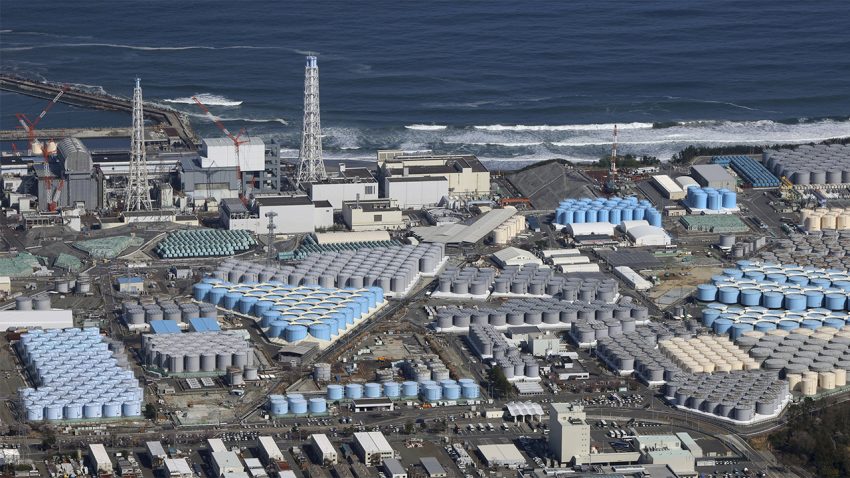The Government of Japan has been criticised by the Melanesian Spearhead Group (MSG) Secretariat for using the International Atomic Energy Agency (IAEA) report to justify what it calls the ‘mischievous and at worst, disingenuous’ discharge of treated nuclear waste water into the Pacific Ocean.
A statement released Monday by its MSG Director General, Leonard Louma claimed that, “Nowhere in the report, do we find a categoric or explicit endorsement of, and approval for, the discharge of ALPS water into the Pacific Ocean.”
“In fact, the best proof that ALPS is safe, is to discharge it into Japan’s own internal waterways and that no amount of justification, scientific or otherwise, will suffice,” he said, adding that we in the Pacific are too well aware of the fallacy of the safety of nuclear activities.”
Louma said the Pacific and its people have been victims of false assurances.
“The scourge of the health effects of, once touted negligible effects of nuclear activities, continue to beset us to this day. We were removed from our islands and told that we would be returned to our homelands once the testing was over because it would be safe then,” he said.
Today, he said, Bikini Islanders continue to languish in other lands with no real hope of returning because their homeland is still contaminated.
“We were assured that we could swim in our lagoons and fish in our traditional fishing grounds once the tests were over, these lagoons and fishing grounds around Mururoa and Bikini continue to be out of bounds to us because they are still contaminated.
“We were told that the storage facility for the nuclear waste was built to the highest safety standards, by their own admission, the Runit Dome (Tomb) structure appears to be compromised now,” DG Louma added.
“So please forgive us if we are sceptical of this safety narrative that you have gone overdrive to have us believe that the ALPS water is safe. Excuse us if we appear naïve when we say science can be wrong.
Our experience tells us to be cautious,” he added.
The Pacific Ocean he said, is our mother that feeds us and her health determines our survival.
“Any action that portends to affect her health is of concern to us and we make no apologies for speaking out to protect her and her ecosystem.
“We may not be nuclear scientists, but our reading of the IAEA Assessment Report before the discharge gives us no comfort at all. The “qualified” words and “diplomatic” construction of language used in the Assessment Report suggests to us that even the IAEA is not sure of the safety of the discharge of the ALPS water into the Pacific Ocean”.
“For how would one interpret the use of “consistent with” safety standards, the effects will be “negligible”, and “additional review” or checks will be done again when discharge takes place. And we understand this cautious approach, for science can only tell us what it knows now but cannot tell us what it does not know yet, said Louma.
He stated, “We cannot accept that cost considerations, technical difficulties and domestic legislation designating ALPS as “radioactive waste” and as such “toxic” should be considered more important than the health of the Pacific Ocean and its ecosystem and all of us that depend on it for our survival”.
DG Louma reaffirmed the appeal by Pacific Leaders for a precautionary approach to be adopted, for ongoing discussions between all stakeholders to continue, and for alternative uses to the ALPS be aggressively sought.
